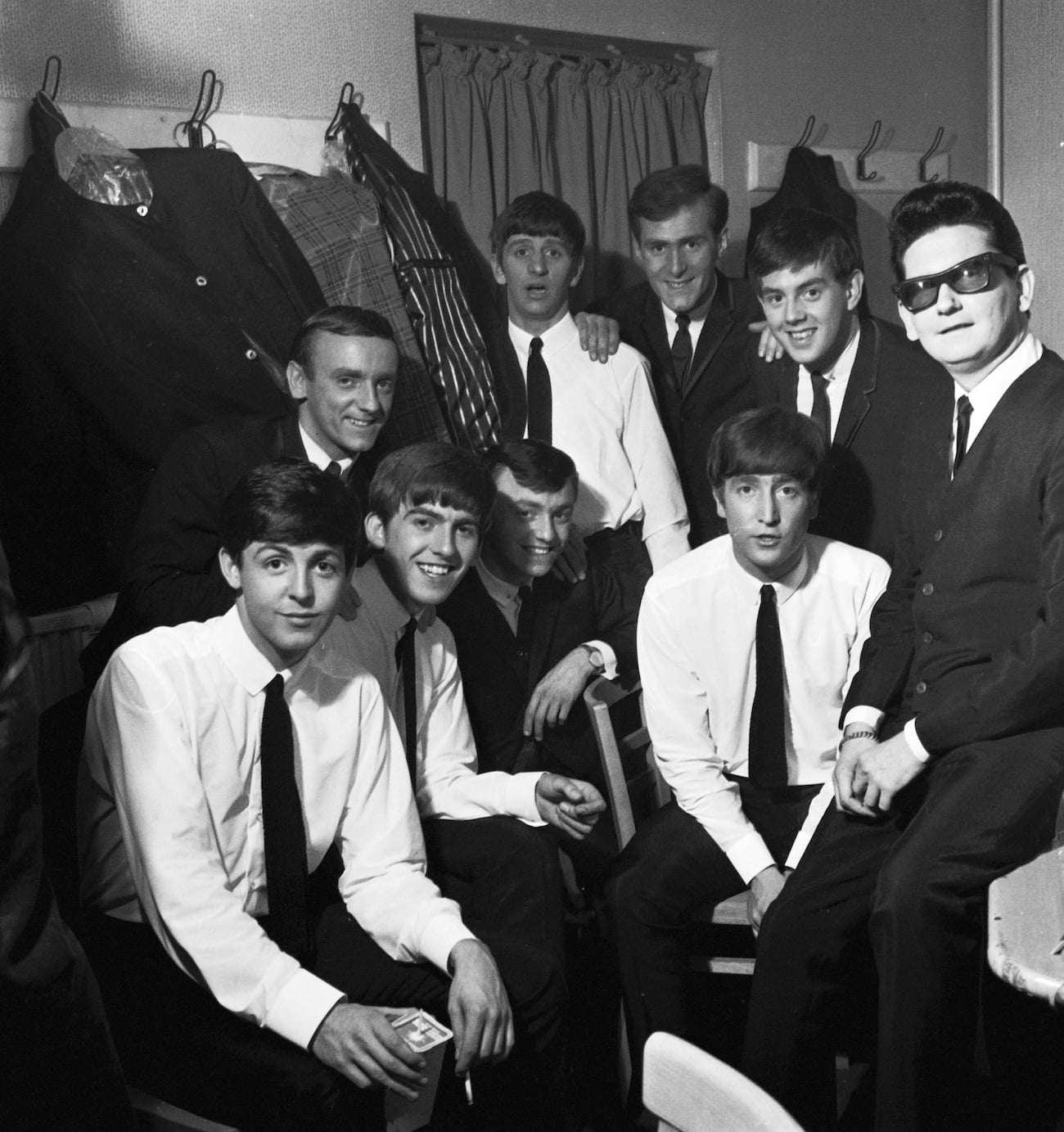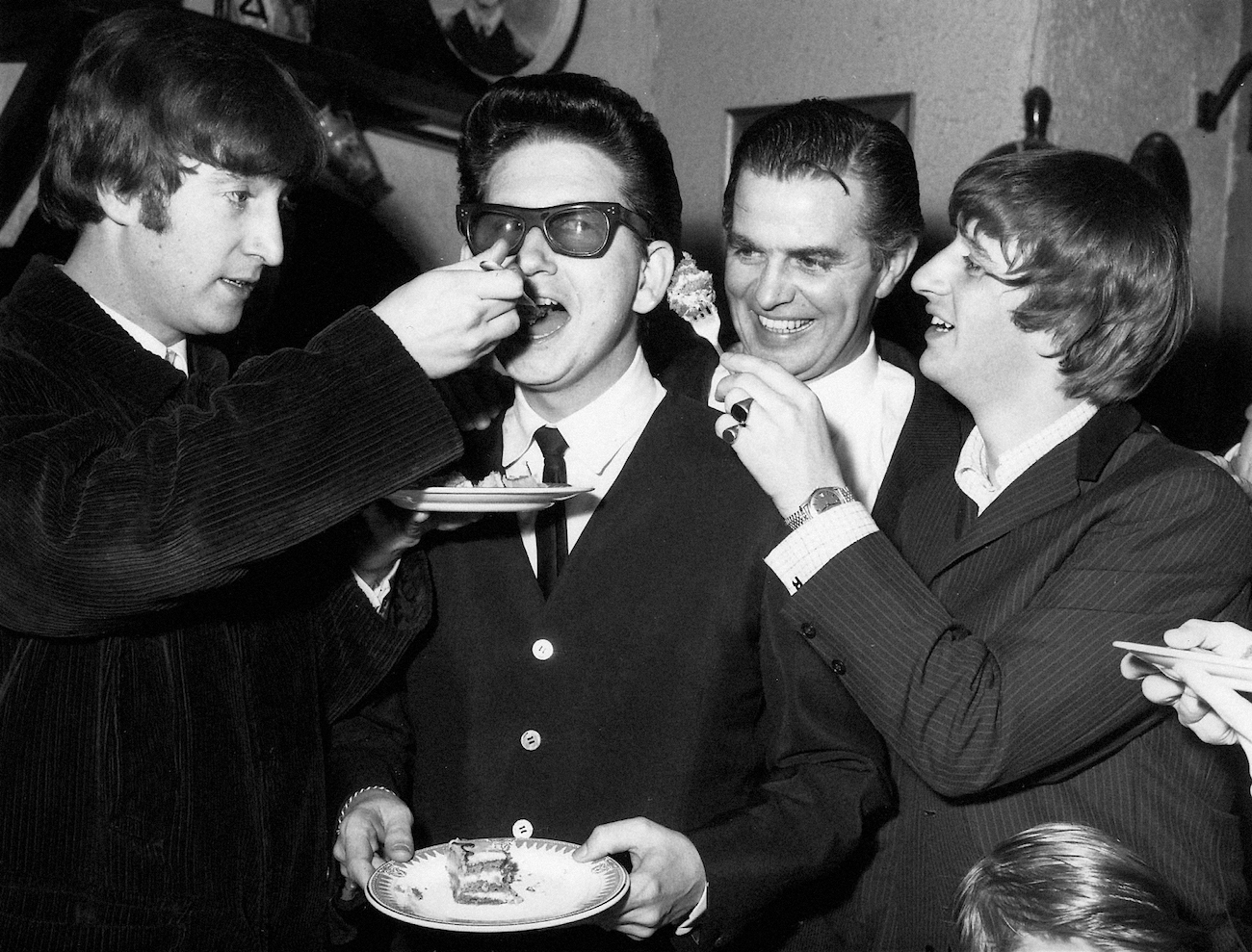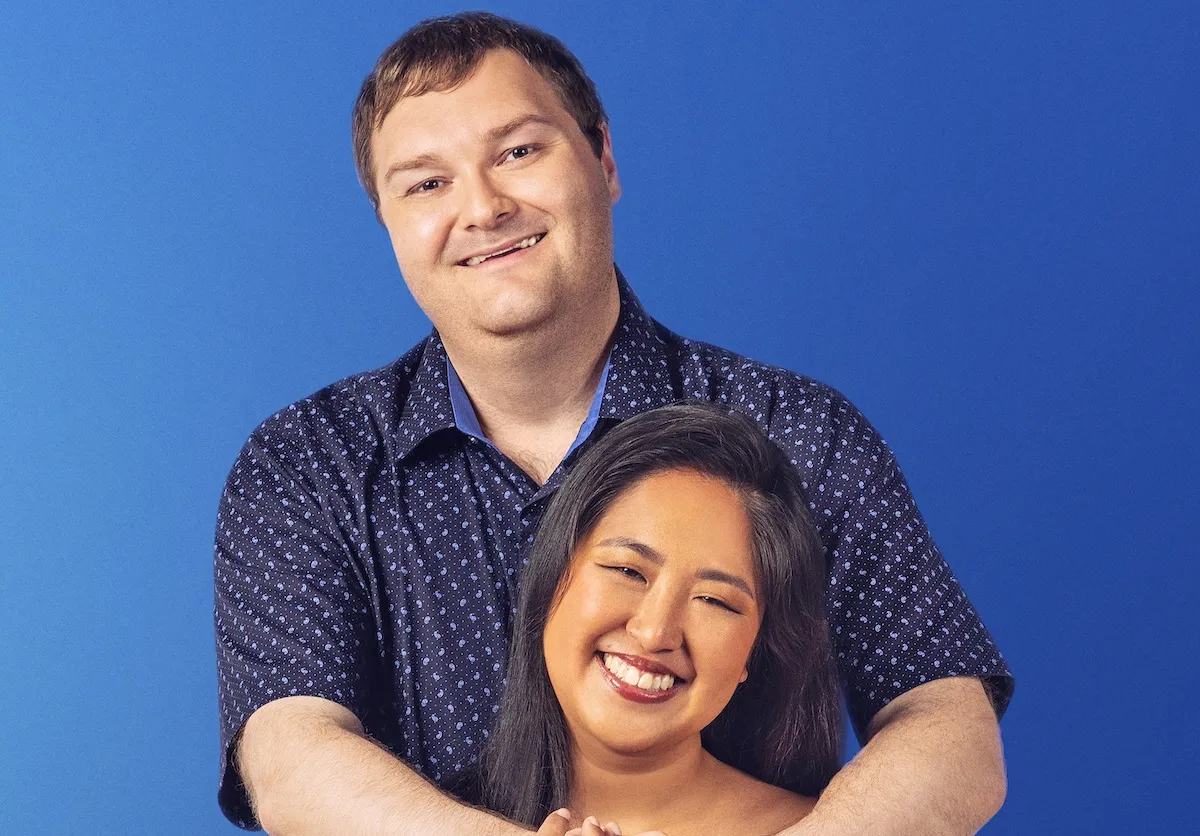
Paul McCartney Called The Beatles’ Tour With Roy Orbison a ‘Historic Moment’
Paul McCartney called The Beatles‘ 1963 tour with Roy Orbison a “historic moment.” It was the “Pretty Woman” singer’s first tour of the U.K. and The Beatles’ third. The Fab Four had yet to conquer the U.S., but it was safe to say they’d already taken their country by storm, so much so that they became co-headliners with Orbison, originally the headlining act.
However, there was no competition between The Beatles and Orbison. They inspired each other.

The Beatles co-headlined with Roy Orbison on their 1963 tour of the U.K.
In the spring of 1963, The Beatles embarked on their third tour of the U.K. with Orbison, Gerry and the Pacemakers, David MacBeth, Louise Cordet, Tony Marsh, Terry Young Six, Erkey Grant, and Ian Crawford.
They’d already released their first studio album, Please Please Me, which had their first hit, “Love Me Do,” and their second, “Please Please Me.” The Beatles’ popularity was skyrocketing in the U.K. and Europe and eclipsed the star power of Orbison, one of their heroes.
On Letterman, Orbison explained The Beatles asked him to close out the shows on the tour. He asked why, and they said he was making all the money anyway. Because of all the screaming girls, everyone on the bill had to arrive at each venue at 2 p.m. but couldn’t leave until about 4 a.m.
Paul McCartney said The Beatles’ tour with Roy Orbison was a ‘historic moment’
In The Lyrics: 1956 to the Present, Paul explained that while traveling from venue to venue, he and John wrote songs. While missing his then-girlfriend, Jane Asher, Paul wrote “All My Loving.” He wrote the lyrics on the tour bus, and when they reached the next venue, he wrote the melody on the nearest piano.
Paul also wrote “From Me To You.” Being on the same tour bus as Orbison, one of their idols, it was hard not to get to write music.
“We were on tour with Roy Orbison at the time we wrote this,” Paul wrote. “We were all on the same tour bus, and it would stop somewhere so that people could go for a cup of tea and a meal, and John and I would have a cup of tea and then go back to the bus and write something.”
In The Beatles Anthology, Paul said that while they wrote their songs, Orbison was writing “Pretty Woman.” So, there was a little competition between them. In The Lyrics, Paul fondly recalled the atmosphere on the tour bus. It was more inspiring than competitive.
“It was a special image to me, at twenty-one, to be walking down the aisle of the bus and there on the back seat of the bus is Roy Orbison, in black with his dark glasses, working on his guitar, writing ‘Pretty Woman,'” Paul wrote.
“There was a camaraderie, and we were inspiring each other, which is always a lovely thing. He played the music for us, and we said, ‘That’s a good one, Roy. Great. And then we’d say, ‘Well, listen to this one,’ and we’d play him ‘From Me to You.’ That was kind of a historic moment, as it turned out.”
The Beatles’ tour with Orbison boosted both of their careers
On the tour bus, The Beatles and Orbison seemed to egg each other on in their songwriting. They inspired each other. However, on the stage, The Beatles felt pressure to perform after their idol. They didn’t know how to follow him.
Orbison held his own on the tour. Most of the audience members turned out for The Beatles. However, Orbison had a unique way of combating all the screaming girls. According to Slate, he started his sets by telling his band to play the first song, pianissimo, so the audience quieted.
Once he started playing, it didn’t take long for the crowds to love him. The Beatles were scared to go on after Orbison because he performed so well.
“He’d had so many hit songs and people could sit and listen to him all night,” George Harrison explained in The Beatles: Anthology. “He didn’t have to do anything, he didn’t have to wiggle his legs, in fact he never even twitched, he was like marble. The only things that moved were his lips—even when he hit those high notes he never strained. He was quite a miracle, unique.
“We soon took over as top of the bill. We had to come on after Roy…Roy would be out there every night and at the end he’d be singing, ‘She’s walking back to me, do do do do da do do-do…’ And the audience would go wild. We’d be waiting there and he’d do another big encore and we’d be thinking, ‘How are we going to follow this?’ It was really serious stuff.”
“Until now we’d never topped a bill,” John Lennon added. “It was pretty hard to keep up with that man. He really put on a show; well, they all did, but Orbison had that fantastic voice.”
The tour boosted both The Beatles and Orbison’s popularity in the U.K.


